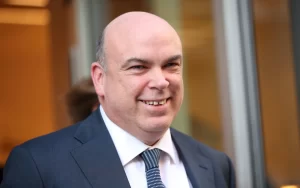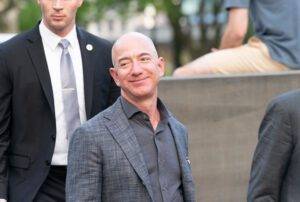HP makes final $1.8bn claim against Mike Lynch’s estate in long-running Autonomy fraud case

Hewlett Packard has submitted a final claim of almost $1.8 billion (£1.4 billion) against the estate of Mike Lynch, intensifying one of the longest and most expensive corporate fraud battles in UK legal history.
The latest claim is substantially lower than the $5 billion HP originally sought over its ill-fated 2011 acquisition of Autonomy, but still far exceeds the late entrepreneur’s estimated £500 million estate.
Lynch, once hailed as Britain’s answer to Bill Gates, died in August last year when his superyacht sank off the coast of Sicily during celebrations following his acquittal in a separate US criminal trial. Seven people were killed in the incident, including Lynch and his daughter. The tragedy left unresolved the question of how much his estate would ultimately owe HP after the High Court found him liable for civil fraud.
In a lengthy 2022 judgment, Mr Justice Hildyard concluded that Lynch and Autonomy’s former chief financial officer Sushovan Hussain had fraudulently inflated the software company’s revenues and misrepresented its performance before selling it to HP for $11 billion. Although the judge said HP would still have proceeded with the deal had it known the true state of Autonomy’s finances, he ruled that Lynch and Hussain had deliberately misled the buyer.
Earlier this year, Hildyard determined that Lynch’s estate should pay more than £700 million in damages. This week’s hearing is focused on finalising the precise sum, including interest. HP argues that interest payments alone total $761 million. However, Richard Hill KC, representing the Lynch estate, called HP’s calculation “excessive” and said its position was “overly simplistic”, accusing the company of assuming it was “the victor in this litigation” without acknowledging the complexities of the case.
Patrick Goodall KC, for HP, reiterated the company’s position, arguing Lynch had “not only perpetrated an enormous fraud, but lied about it at every stage”.
The Lynch estate is appealing on multiple technical grounds, including whether HP had legal standing to sue for fraud given its corporate structure at the time of the acquisition. The estate is also challenging how Autonomy’s true value was calculated and even which currency should be used when determining parts of the damages.
The bitter dispute dates back more than a decade. Hussain was convicted of fraud in the US in 2018 and sentenced to five years in prison before his release in early 2024. He later settled with HP in the UK civil case for £77 million. In 2021, the Financial Reporting Council fined Deloitte £15 million for “serious failures” in its audit of Autonomy’s accounts.
Lynch himself faced a long extradition battle before being sent to the US in 2023 to stand trial. He was ultimately acquitted, along with Stephen Chamberlain, Autonomy’s former vice-president of finance, in June 2024. The UK civil claim, launched by HP in 2015, began trial hearings in 2019 and has become one of the longest-running and most expensive commercial cases ever brought in the High Court. Goodall told the court that HP has spent £150 million on the litigation.
A spokesman for the Lynch family maintained that HP’s claim remains “fundamentally flawed”, arguing that the company’s own mismanagement destroyed most of Autonomy’s value.
“By any account, including the court’s, HP’s own mismanagement destroyed the vast majority of Autonomy’s value,” he said.
An HP spokesman welcomed the latest hearing, saying it “brings us a step closer to the resolution of this dispute.”
Read more:
HP makes final $1.8bn claim against Mike Lynch’s estate in long-running Autonomy fraud case








